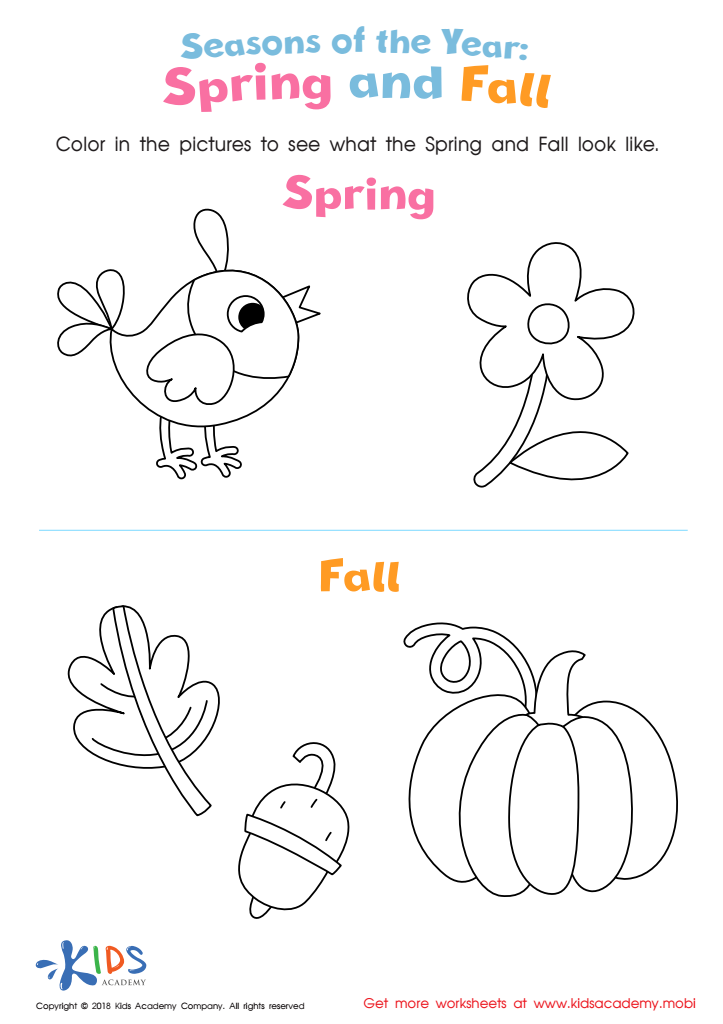Developing observation skills Science Worksheets for Ages 4-6
3 filtered results
-
From - To
Discover our engaging "Developing Observation Skills Science Worksheets" designed specifically for ages 4 to 6. These fun and interactive worksheets encourage young learners to explore the world around them while honing their observation skills. Through hands-on activities, children will learn to notice details, identify patterns, and articulate their findings. Perfect for home or classroom use, our resources support early science education and foster curiosity. From colorful illustrations to easy-to-follow instructions, each worksheet is crafted to stimulate critical thinking and enhance cognitive development. Download now and inspire your little scientists to become keen observers of the natural world!


Sink or Float Printable


Light and Sound: Assessment 2 Worksheet


Spring and Fall Worksheet
Developing observation skills in young children, particularly in the ages of 4-6, is essential for fostering a strong foundation in both science and overall cognitive development. At this stage, children are naturally curious and eager to explore their environments. By encouraging them to observe carefully, parents and teachers can nurture this curiosity, helping children to learn how to ask questions, identify patterns, and make connections between different concepts.
Observation is a fundamental skill in scientific inquiry, helping children to gather information, analyze data, and draw conclusions. For instance, when children observe how plants grow or how animals interact, they not only learn scientific concepts but also engage critical thinking and problem-solving skills. These experiences promote language development, as they articulate their observations and share ideas with peers.
Furthermore, observation skills enhance children's creativity and imagination. They learn to appreciate the intricacies of the world around them, fostering a sense of wonder and exploration. This early science engagement creates a positive attitude toward learning and encourages lifelong enthusiasm for knowledge. When parents and teachers prioritize observational learning, they equip children with essential tools that contribute to academic success and foster holistic development for their future endeavors.
 Assign to My Students
Assign to My Students















